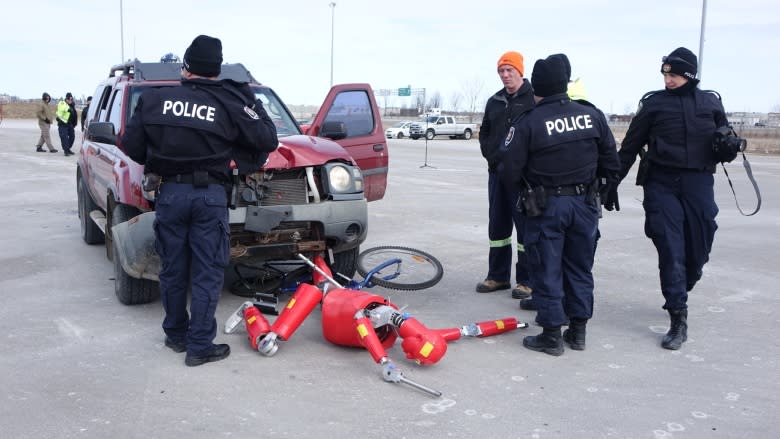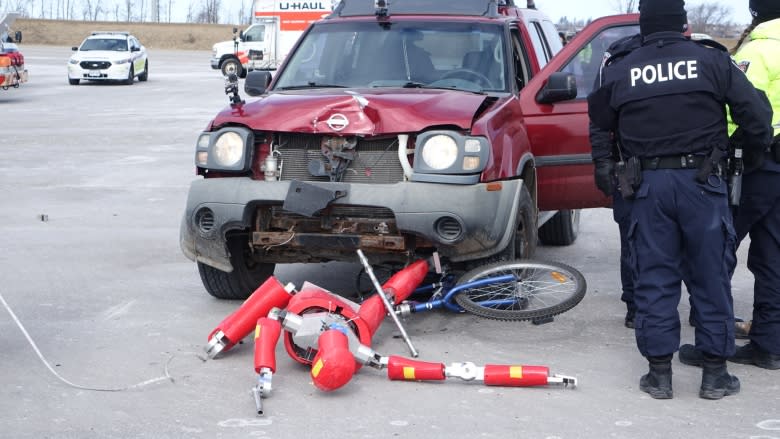Carleton's crash test dummy team aiding collision investigators
Carleton University engineering students are teaming up with Ottawa police today to better understand what exactly happens when a vehicle strikes a cyclist.
Watched by a small crowd of students, police and firefighters, Carleton's crash dummy team sent the bright red cyclist down a 12-metre track, a journey that ended in a swift and nasty crash with a vehicle going 50 km/h.
The simulation was meant to help investigators understand what happens when a cyclist is hit by a car from behind, said engineering professor Andrew Speirs.
"[Police] can see exactly what happened and then they can look at the marks on the ground and develop their collision reconstruction techniques," he said.
Year-long project
The crash test is a final-year course for about 20 students, Speirs said. The team started working on the project back in September, developing the track, the dummy, and the sensors.
Fourth-year engineering student Daniel Mason said there's a sense of pride in helping inform police investigation techniques.
"It's awesome," he said. "Especially after working on this for a year, we're all pretty excited, especially because it's working."
The dummy is equipped with sensors that can give investigators an idea of what kinds of injuries a cyclist might sustain in such a collision.
The data gathered will go toward helping police know what to look for when they encounter a collision between a vehicle and a cyclist, Mason said.
Reconstructing collisions
Ottawa police Det. Alain Boucher said that currently, when reconstructing scenes, police investigators use a formula meant for collisions between pedestrians and vehicles — not vehicles and cyclists. He said today's test will help police figure out whether the speed of the cyclist affects the outcome of the collision.
"We're looking at it as a training tool for us, in terms of learning how a cyclist gets hit," Boucher said. "If you don't know what you're looking for, you can't properly measure the scene."
With more and more cyclists on the roads, Boucher said police are preparing for more frequent collisions.
"I hope not, but we'll probably get more crashes happening involving cyclists," he said. "We need to prepare as a police service to know what to look for at these crashes to properly investigate it."
And it's not just helpful for the police, Mason said.
"For us, it gives us some practical experience before we go into the working world. It's a win-win."




